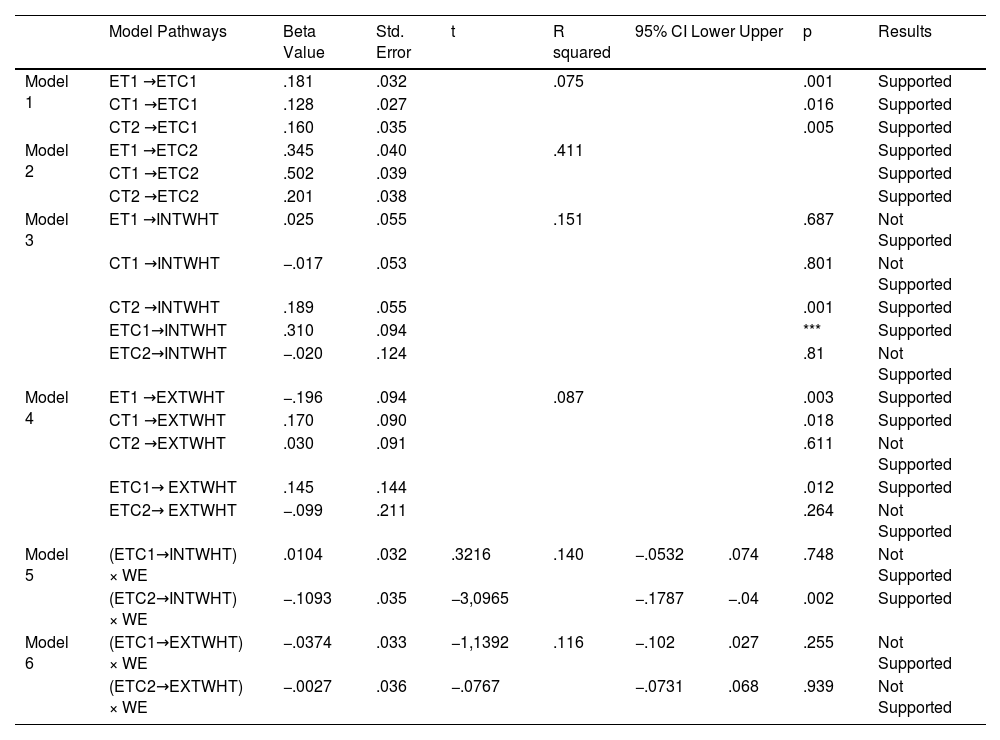This study aims to determine the moderator role of work experience in the impact of ethical culture perceptions of healthcare professionals on their whistleblowing tendencies. It is also to reveal the effect of organizational trust on whistleblowing.
MethodsThe population of the study consists of health personnel working in the public or private sector in Turkey. The sample of the study consists of 481 health workers who voluntarily participated in the survey. Data were collected using the convenience sampling technique. In collecting data, whistleblowing, organizational trust, and ethical culture scales were used. In the analysis of the data, descriptive statistics, factor analysis, correlation analysis, and path analysis in the structural equation model were performed.
ResultsThe findings reveal that organizational trust has an impact on ethical culture and that some sub-components of organizational trust and ethical culture have an impact on whistleblowing. In addition, it has been determined that the group of health professionals with low work experience has a moderating role in the effect of applicability on internal whistleblowing.
ConclusionTo handle the whistleblowing mechanism internally in health institutions, it is important to clearly show the ethical rules to the employees. On the other hand, it has been seen that the professional experiences of the employees can be used as a tool for whistleblowing to work.
Este estudio tiene como objetivo determinar el papel moderador de la experiencia laboral en el impacto de las percepciones de la cultura ética de los profesionales de la salud en sus tendencias de denuncia de irregularidades. También pretende revelar el efecto de la confianza organizacional en la denuncia de irregularidades.
MétodosLa población del estudio está formada por personal sanitario que trabaja en el sector público o privado en Turquía. La muestra del estudio está compuesta por 481 trabajadores de la salud que participaron voluntariamente en la encuesta. Los datos se recolectaron mediante la técnica de muestreo por conveniencia. En la recopilación de datos se utilizaron escalas de denuncia de irregularidades, confianza organizacional y cultura ética. En el análisis de los datos se realizó estadística descriptiva, análisis factorial, análisis de correlación y análisis de ruta en el modelo de ecuaciones estructurales.
ResultadosLos hallazgos revelan que la confianza organizacional tiene un impacto en la cultura ética y que algunos subcomponentes de la confianza organizacional y la cultura ética tienen un impacto en la denuncia de irregularidades. Además, se ha determinado que el colectivo de profesionales sanitarios con baja experiencia laboral tiene un papel moderador en el efecto de aplicabilidad sobre la denuncia interna.
ConclusionesPara manejar el mecanismo de denuncia internamente en las instituciones de salud, es importante mostrar claramente las reglas éticas a los empleados. Por otro lado, se ha visto que las experiencias profesionales de los empleados pueden utilizarse como herramienta para denunciar irregularidades en el trabajo.











